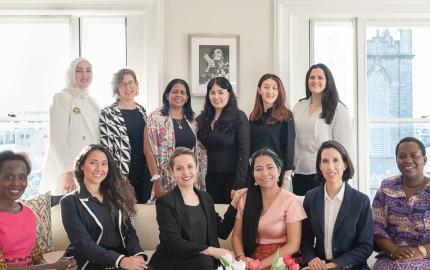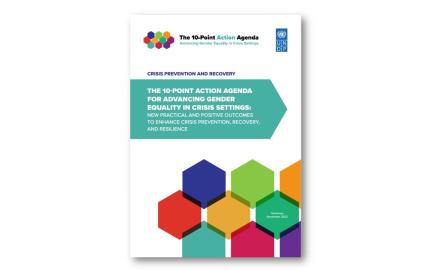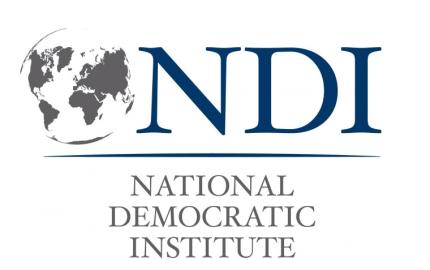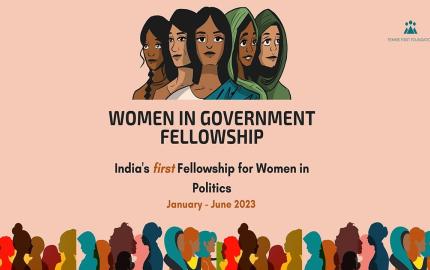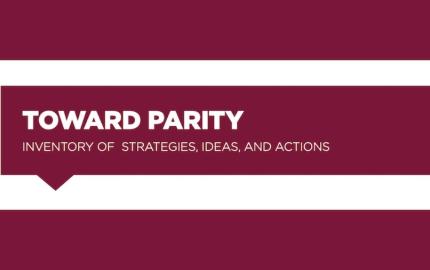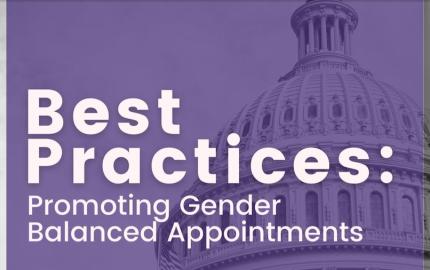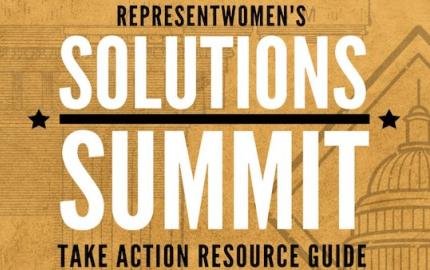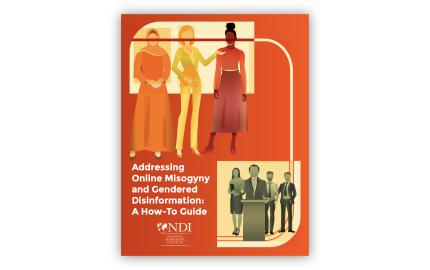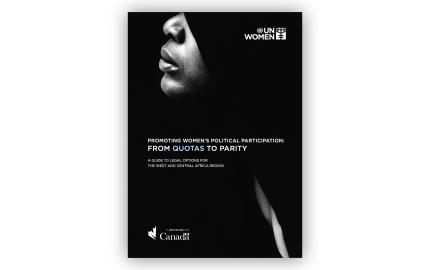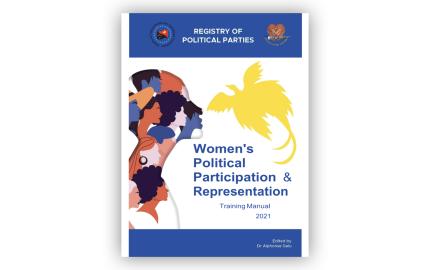Women's Leadership
Main navigation
What do you think motivated Israel to attack Iran?
This conflict can’t be understood without looking at the decades-long tensions between Israel and Iran. Both are authoritarian and patriarchal regimes that use each other to justify repression at home. Iran relies on anti-western and anti-Israel narratives to silence dissent, while Israel invokes security threats from Hamas in Gaza or Iran’s nuclear programme to justify its actions. Each fuels the other’s hold on power.
Iran engages in so-called ‘unconventional wars’ to expand its regional influence and distract from internal crises just as Israel uses the conflict to divert attention from its domestic problems, including its treatment of Palestinians. Neither has an interest in genuine peace as they both benefit from a state of ongoing confrontation and constant sense of crisis.
During the recent phase of conflict, military targets were hit, and Iran’s intelligence services used the moment to crack down harder on activists and union workers. Daily life in Iran continues to be shaped by corruption, poverty and repression, particularly in regions that are rich in resources but lack basic services.
Some Iranians hoped the conflict might lead to regime change, but it quickly became clear this wouldn’t happen. Instead, the conflict helped both governments strengthen their grip on power. The war is unlikely to end, and will likely continue in unconventional forms, allowing both sides to maintain control under the guise of an ongoing existential threat.
Amalia Alvarez-Benjumea is a Ramón y Cajal Research Fellow at the Institute of Public Goods and Policies at the Spanish National Research Council. Her research explores the emergence and evolution of social norms, particularly the impact of social feedback and contextual information on norm perception and conformity. Amalia Alvarez-Benjumea joined a two-day Expert Group Meeting organized by UN Women to address one of the most persistent barriers to gender equality in political and public life: discriminatory social norms. The event held on 4 and 5 February 2025, brought together feminist scholars, policymakers, activists, and practitioners to chart a path forward for transforming social norms and ensuring women’s full and effective political participation. This experts’ meeting was organized under the WYDE | Women’s Leadership, funded by the European Union, which is a collaborative global effort aimed at advancing women’s full and effective political participation and decision-making at all levels, especially those most often left furthest behind.

-
How do social norms shape the way we view women in politics?
This is a complex issue because social norms are part of broader cultural frameworks that include expectations, roles, and stereotypes. Unfortunately, gender norms and stereotypes often work against women in politics. There is a deeply rooted belief that women belong in the domestic sphere rather than the public one, or that they are not well-suited for positions of power, management and leadership.
Meanwhile, stereotypes about men tend to reinforce the idea that they are “naturally fit” for leadership roles, they are expected to excel in positions of power and be comfortable with decision-making authority. This contrast creates an uneven playing field, making it significantly harder for women to enter and succeed in politics.
Beyond that, when individuals step outside of societal expectations, they are often scrutinized and judged more harshly. Women in politics frequently have to prove themselves as more competent than average, while also facing disproportionate criticism if they make mistakes.
-
What are some of the biggest barriers women face when stepping into leadership roles, and how can they be addressed?
There are both material and societal barriers. Gender norms dictate that women should prioritize caregiving and domestic responsibilities such as taking care of the children, which directly impacts the time and resources they can dedicate to politics. The reality is that women often have fewer hours available for political engagement compared to their male counterparts.
Beyond time constraints, women in politics also face intense backlash, especially online. My research has shown that female politicians and activists, especially those involved in feminist movements, are frequent targets of harassment and hate speech on digital platforms. This hostility discourages women from fully utilizing online spaces for political engagement, limiting their ability to express opinions freely and harnessing the potential of digital platforms for political outreach.
To address these barriers, we need both systemic changes—such as policies supporting work-life balance and political representation quotas—and cultural shifts that challenge harmful stereotypes and normalize women’s leadership. Online harassment must also be tackled through platform regulations that are better designed and drawing from evidence, as well as stronger support networks for women in public life.
-
What lessons can we draw from your research to reduce sexism and biases in political and online spaces?
While not everyone actively confronts gender-based hate speech, there is always a segment of people who push back against it. Encouraging this kind of intervention is essential and has a very positive effect actually.
When individuals counteract sexist remarks, stereotypical statements such as “you belong in the kitchen”, whether online or in public discourse, they help reset societal norms. If someone publicly challenges statements like, “women don’t belong in politics,” it signals to bystanders and observers that this perspective isn’t universally accepted and should not be the norm. It reinforces the idea that women have every right to participate in political spaces and increases the likelihood of other bystanders to intervene as well. Creating and promoting these counter-narratives is a crucial strategy in dismantling biases and reducing discrimination. The more people speak up against sexism, the more we normalize gender equality in leadership.
-
How do intersecting identities—such as race, ethnicity, age, or disability—affect women’s experiences in political spaces?
Intersectionality plays a major role in shaping women’s experiences. A woman in politics is not just navigating gender norms—she is also navigating additional layers of stereotypes based on other aspects of her identity.
For instance, women from marginalized racial or ethnic groups, younger women, or women with disabilities often face compounded biases. If a woman also belongs to the LGBTQ+ community, she may be perceived as “deviating” from traditional gender expectations in multiple ways, making her even more vulnerable to scrutiny and discrimination.
These overlapping biases create unique challenges that require intersectional solutions. Representation matters—not just for women in general, but for diverse women from different backgrounds.
-
What advice would you give to young women entering politics, particularly regarding online harassment?
Despite the challenges, there are reasons to be optimistic. My advice would be: build a strong support network or a reference group. Identify the people you can rely on, whether it’s colleagues, mentors, or allies who share your values and who can create narratives that you can use when facing this sort of hatred.
Also, develop a set of prepared responses for moments when you face harassment or pushback. Having a “toolkit” of responses can help you navigate difficult interactions, online or in person. At the same time, make sure you have people who can step in to defend you when needed. The reality is that online harassment is a major issue, but by preparing for it and surrounding yourself with a reliable support system, you can focus on making an impact rather than constantly being on the defensive.
Original interview published on Capacity4Dev.
Abosede George-Ogan is the Founder of the Women in Leadership Advancement Network in Nigeria and a seasoned development professional with over 20 years of experience across the non-profit, private, and public sectors. Specialized in media and narratives, she also hosts a TV show focused on shaping the perception of women leaders in Nigeria with 17 million views. Her work centers on fostering women’s leadership across all levels. Abosede joined a two-day Expert Group Meeting organized by UN Women on 4-5 February 2025 to address one of the most persistent barriers to gender equality in political and public life: discriminatory social norms. This experts’ meeting was organized under the WYDE | Women’s Leadership, funded by the European Union, which is a collaborative global effort aimed at advancing women’s full and effective political participation and decision-making at all levels, especially those most often left furthest behind.

“The media plays a crucial role in shaping narratives and transforming gender and social norms. From a young age, we are constantly exposed to media, and today, with people consuming content directly through their phones, its influence is stronger than ever. This is why we must pay attention to how media shapes perceptions.
The reality is that media can have both a positive and negative impact. Unfortunately, we’ve seen it mostly reinforcing existing discriminatory social norms. However, there is a real opportunity to actively recruit the media as agents of change. Media have the power to reshape narratives and help society see the collective benefit of having women in leadership.
One major shift that needs to happen is in how the media portray women. Headlines must move beyond focusing on appearance or traditional caregiver roles and instead highlight women's competence, accomplishments, leadership, and abilities. Our Representation Matters campaign aims to demonstrate—through facts and compelling storytelling—that excluding women comes at a cost and that showing them in leadership role actually has a knock-on effect. The media becomes the vehicle to drive this message forward. We also produce a television show designed to spark conversations about gender norms and leadership in Nigeria. It encourages viewers to interrogate their own perceptions—where do these ideas come from? Why do people believe that leadership is a male domain? Why do they admire their mothers but struggle to see women as leaders? If our show gets people talking, it’s a win, because that’s how change begins.
If we want to reshape social norms, we must bring the media along. This means equipping them with the right language, tools, research so they can tell better stories. Lastly, it is not just about content—it is also about ownership. Who controls media platforms? Who has decision-making power? Media ownership remains largely male-dominated, and ensuring diversity in ownership will accelerate the change we want to see. We need more women entrepreneurs in the media space. Yet this is challenging, considering media is capital-intensive: you need infrastructure, equipment, and significant funding, which is why many women remain in supporting roles in media rather than taking the lead in media business ownership.
Ultimately, when women lead influential companies that employ thousands across various regions, they can shape media to offer more substantive, unifying, and enriching content. This can serve as a counterbalance to today’s political media, which often thrives on division and polarization. By reshaping the media landscape, we have the power to reshape society."
Original interview published on Capacity4Dev.
Naila Kabeer is a Professor Emerita in Gender and International Development at the Department of International Development, London School of Economics and Political Science. She is also a Faculty Associate at LSE’s International Inequalities Institute and serves on the governing Naila’s extensive work and research focuses on gender equity, social justice, labour markets, and poverty alleviation. Naila Kabeer joined a two-day Expert Group Meeting organized by UN Women to address one of the most persistent barriers to gender equality in political and public life: discriminatory social norms. The event held on 4-5 February 2025 brought together feminist scholars, policymakers, activists, and practitioners to chart a path forward for transforming social norms and ensuring women’s full and effective political participation. This experts’ meeting was organized under the WYDE | Women’s Leadership, funded by the European Union, which is a collaborative global effort aimed at advancing women’s full and effective political participation and decision-making at all levels, especially those most often left furthest behind.
what advice would you give to young women aspiring to lead in their communities and countries?
Have courage. The world is not always kind to young women who step forward! Find support, build alliances, you don’t have to face the system alone. Be present in every space where decisions are made and make people aware that gender equality matters everywhere. Having allies and a strong constituency behind you will give you the strength to keep going. And finally, never let anyone put you down!
Full interview available here.
Jennifer M. Piscopo is a Professor of Gender and Politics and Director of the Gender Institute at Royal Holloway, University of London. Her research examines gender, elections, and democracy, with a focus on women’s political participation in Latin America and the United States. Jennifer Piscopo joined a two-day Expert Group Meeting (EGM) organized by UN Women to address one of the most persistent barriers to gender equality in political and public life: discriminatory social norms. The event held on 4-5 February 2025 brought together feminist scholars, policymakers, activists, and practitioners to chart a path forward for transforming social norms and ensuring women’s full and effective political participation. This experts’ meeting was organized under the WYDE | Women’s Leadership, funded by the European Union, which is a collaborative global effort aimed at advancing women’s full and effective political participation and decision-making at all levels, especially those most often left furthest behind.
-
What sparked your passion for studying women's representation and gender in elections?
I'm American, and when I was growing up, there were very few women in U.S. politics. Unfortunately, that’s still the case today—there are very few women in key political leadership roles.
But in some countries, that wasn’t the case. They elected more women to office and even as heads of state and government, which is what led me to comparative political science. I wanted to be able to compare and understand why some countries break barriers to women’s political participation more successfully than others.
-
What are the key barriers to women’s political participation?
There are many barriers. One common narrative is that women doubt their own abilities and capacities to run for office – which is perhaps true in some cases. So many development programs and organizations have therefore focused on boosting women’s confidence and encouraging them to see themselves as political actors. But actually, self-doubt isn’t the biggest barrier! If this were the case, we wouldn’t see such stark differences across countries in electing women. One of the real, more significant obstacles is political parties. Political parties have historically been male-dominated, which means men control who gets nominated, what resources are provided for campaigns and how elected officials maintain power. Women often find themselves blocked from these institutions that have been historically dominated by men. Even when women meet the required qualifications, the bar shifts. First, they’re told they lack the right education, so they get degrees in law or business. However then, they’re told they lack political experience. So the goalposts keep moving for women, which is the reason we focus so much on the preparing women as political leaders. But this emphasis on preparing women means we actually miss out on policy interventions which should focus on the barriers. We need to target political parties or party leaders to change their attitudes and beliefs, and redefine what qualifications matter. The real issue isn’t women "fixing themselves"—it’s fixing the institutions that gatekeep political opportunities.
-
How do gender quotas help?
Gender quotas are a great example of policies that cut through or bypass cultural and individual beliefs that society may have about women political leaders. Quotas can challenge both cultural biases and party structures, since they require parties to nominate women, forcing the parties to recruit, train, and position them women candidates for success.
And quotas work. When quotas are enforced, suddenly political parties find, support, and elect women. And not only do women win, but they also prove to be effective leaders and successful at governing.
Quotas can be viewed as a sort of shortcut, to swiftly raise number of women in office, overcoming individual and partisan barriers.
Finally, beyond increasing numbers, quotas transform institutions. They have a knock-on effect. They lead to changes within party cultures, parliamentary codes of conduct and meeting structures, ensuring a more inclusive and professional environment. Quotas, and women entering institutions through quotas, actually have a transformative effect across the board within parties and parliaments in addition to the fact that elected women may hold different policy priorities.
-
Why is it important to apply a gender lens when analyzing elections?
When I started this work, I worked with political scientists who said, "Elections are about the best candidate winning. This is democracy and this is what we study." But taking a gender lens in this work makes us question that assumption. Because, if men are always winning, despite no inherent difference in abilities or talent, then what does that say about our electoral processes? If democracy means equal opportunity, why don’t we see equal outcomes for men and women in elections? Studying gender in elections reveals whether a democracy is truly substantively meaningful and inclusive. If the same types of candidates always win, are we really getting diverse representation? Are institutions truly accountable to all citizens, or just to those who have historically held power?
-
What advice would you then give young women entering politics?
It’s not you, it’s them! Institutions are designed to preserve themselves and it may feel like the bar keeps moving for women when entering these institutions.
At first, you’ll be told you don’t speak up enough. So, you start speaking up. Then, you’ll be told you lack credentials. So, you’ll get them. And still, the bar shifts again.
This isn’t about your shortcomings, it’s about those in power wanting to maintain the status quo. Adjust when necessary, but don’t lose hope, trust yourself, keep pushing. And keep knocking down these barriers, change will happen!
Click here to see the original post published on Capacity4Dev (European Union) on 23 April 2025.
Politics is a tough subject: it can either paint you as a villain or the master of progress.Sithembile Mbete is a political analyst whose passion goes beyond reporting. She questions the status quo and is not afraid to call out those who abuse power.
How did you become a political analyst?
I studied politics, French and economics for my undergraduate degree, then did honours and masters in international relations at UCT. My first job was at IDASA, a think tank, where I monitored parliamentary committee meetings and helped analyse the 2011 local government elections. That’s where I learned the ropes of political analysis.
I also got involved in civil society campaigning against the “Secrecy Bill”, which gave me insight into political activism and grassroots organising. After that I worked in the Presidency as a researcher for the National Planning Commission Secretariat, which gave me an insider’s view of the government. It was quite an education! I decided to further my studies with a PhD at the University of Pretoria where I’ve been a senior lecturer and researcher since 2013.
Read here the full interview published by Glamour on 28 March 2025.
Image by Glamour
VVEngage is a Vital Voices signature fellowship supporting outstanding women political leaders making and influencing policy across the globe. Through this fully-funded fellowship, we aim to increase the capacity, decision-making power and effectiveness of women leaders in politics and government, shifting culture around women’s public leadership and moving towards equality in public representation globally. We also aim to work towards a more inclusive and equitable world by advancing the UN Sustainable Development Goals (SDGs) through policy.
Through this fellowship, Vital Voices advances women’s political leadership and the SDGs by conducting online and in-person* trainings with experts such as women leaders from the Vital Voices Global Network and professors from Harvard University’s Kennedy School of Government. The fellowship also connects participants to a global network of peers and mentors, such as current and former female heads of state with the Council of Women World Leaders, with whom they can brainstorm and share challenges and best practices.
Click here to learn more and to access application details.
The United Nations Development Programme (UNDP) has developed a 10-Point Action Agenda for Advancing Gender Equality in Crisis Settings (10PAA), a roadmap to guide its development programming towards results that will help transform and advance gender equality in crisis contexts and achieve the Women, Peace and Security agenda. The 10PAA is central to UNDP’s new Crisis Offer, as well as its new Gender Equality Strategy 2022-2025. It represents a strong corporate commitment to addressing the most stubborn roots of gender inequalities.
The 10PAA is the result of a broad consultation process that aimed at finding entry points to strengthen gender-transformational results and women’s leadership and participation in crisis contexts. It is grounded in the understanding that deep-rooted, intersectional discrimination sits at the heart of the multiple challenges humanity faces and reinforces models of dominance that exclude and leave women behind, especially in crisis settings.
Click here to access the publication.
Online violence against women in politics (OVAW-P) poses a deepening challenge to democracy, serving as a key tool of illiberalism and democratic backsliding across the globe. OVAW-P encompasses all forms of aggression, coercion, and intimidation seeking to exclude women from politics simply because they are women. This online behavior seeks to achieve political outcomes: targeting individual women to harm them or drive them out of public life, while also sending a message that women in general should not be involved in politics. This online violence has a chilling effect on the political ambitions and engagement of women and girls, decreasing their presence and agency in politics and public life. Stopping gender-based attacks online is a solvable problem, and it is the fastest and clearest investment toward building an internet that enables everyone to be politically engaged.
This report includes a list of interventions that technology platforms, governments, civil society organizations, and the media can take to make meaningful progress towards ending online violence against women in politics.
Click here to access the report.
The Women in Government Fellowship is a six-month program that is focused on capacity-building, training, and mentorship of women in politics. It seeks to enhance and improve the quality of political participation of women.
The fellows will undergo in-person workshops, intensive virtual learning sessions, and hands-on mentorship by seasoned women politicians. This three-pronged approach will provide an academic grounding of democratic frameworks and policy-making, up-skill them with practical know-hows of electioneering, build the fellows' personal brands through personalised Public Narrative trainings by coaches from Harvard Kennedy School, and learn the ropes of politicking directly from a mentor who is undergoing the realities and tackling the challenges of being a woman in public office.
Application deadline: 30th November 2022
Shortlisted applicants' interviews: 5-15th December 2022
Selected Fellows list: 21st December 2022
Click here to learn more.
A compendium of ideas to reach gender parity in municipal politics
How can we begin to overcome the countless obstacles that are preventing women from fully participating in municipal politics?
The suggestions in this Inventory were compiled following consultations we carried out across Canada, as part of FCM’s Toward Parity Project.
These actions are not official FCM recommendations. They are potential strategies that need to be assessed to determine whether they can be adapted to fit local realities and opportunities.
Click here to access the guide.
To inform our own programming on advancing gender-balanced appointments and to establish a scalable, replicable, transformative model for advancing gender-balanced appointments, RepresentWomen gathered learnings from five similar initiatives around the country.
The following summary reviews these conversations:
- Key ingredients for success
- Stumbling blocks
- What they wish they knew
- Common tactics
Click here to access the guide.
For its inaugural Solutions Summit, RepresentWomen gathered experts in election administration, voting rights, and democracy reform to discuss the viable, scalable, and transformative initiatives that will strengthen our democracy. Over the course of three days, they held sessions on fair elections, fair access, and fair representation, ending each day with ways we could take actions to advance the solutions discussed that day.
They compiled all of those ideas, resources, and guides into one place to create this 2022 Solutions Summit Resource Guide, which provides a plethora of take-action options so you can be a part of the solution.
Click here to download the guide.
The internet is a tool that can simplify and encourage democratic engagement, but the rise of online disinformation challenges even the world’s most robust democracies. While the most recognizable disinformation campaigns are related to national politics, disinformers frequently employ narratives targeting women’s gender and sexuality in order to disrupt democracy. This is often then amplified by media agents and the general population, who may not have the intent to drive disinformation nor the capacity to discern it. NDI’s robust research in this field concludes that gendered disinformation is the use of false information to confuse or mislead by manipulating gender as a social cleavage to attack women and/or to sway political outcomes. It has three primary goals: to keep women out of politics; to change the views of women and men about women’s political participation; and specifically to change party policies or political outcomes. In short, it aims to undermine women’s free and equal participation in politics to the detriment of inclusive, resilient democracy.
Based on research conclusions, this paper outlines recommendations for NDI, its partners and those working globally to mitigate the democratic harms of disinformation, to ensure women’s safe participation and leadership in politics, and to monitor the social media and information environment in elections.
Click here to access the guide.
This guide is designed to increase the understanding of the legal obligations of countries in the West and Central Africa (WCA) region to achieve gender equality in decision-making. It focuses on strengthening efforts to improve the legal framework in the region to ensure that laws are clearly drafted, implementable and effective. Special focus is devoted to the processes by which laws supporting political participation of women are developed, negotiated, drafted, passed and implemented. It aims to strengthen law-making processes that build and secure the legal rights of women who want to run for elections and who are ready to take over leadership positions in their parliaments and governments. Legal instruments are presented that can be used to advance the political participation of women.
The comparative experiences presented in this guide address both examples of good practices and laws that have failed because their regulations are imprecise, unclear and/or lack effective sanctions. The guide presents also various provisions of laws resulting from different constitutional requirements or electoral systems, assessing their advantages and disadvantages.
Click here to download the guide published by UN Women in 2021.
This Handbook has been developed as publication by register of Political Parties with support from the Papua New Guinea Election Commission and the United Nations Development Programme in Papua New Guinea. This is part of UN Women Make the Change programme funded by the Australian Government’s Pacific Women Shaping Pacific Development Programme.
Click here to download the report.






